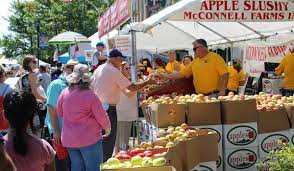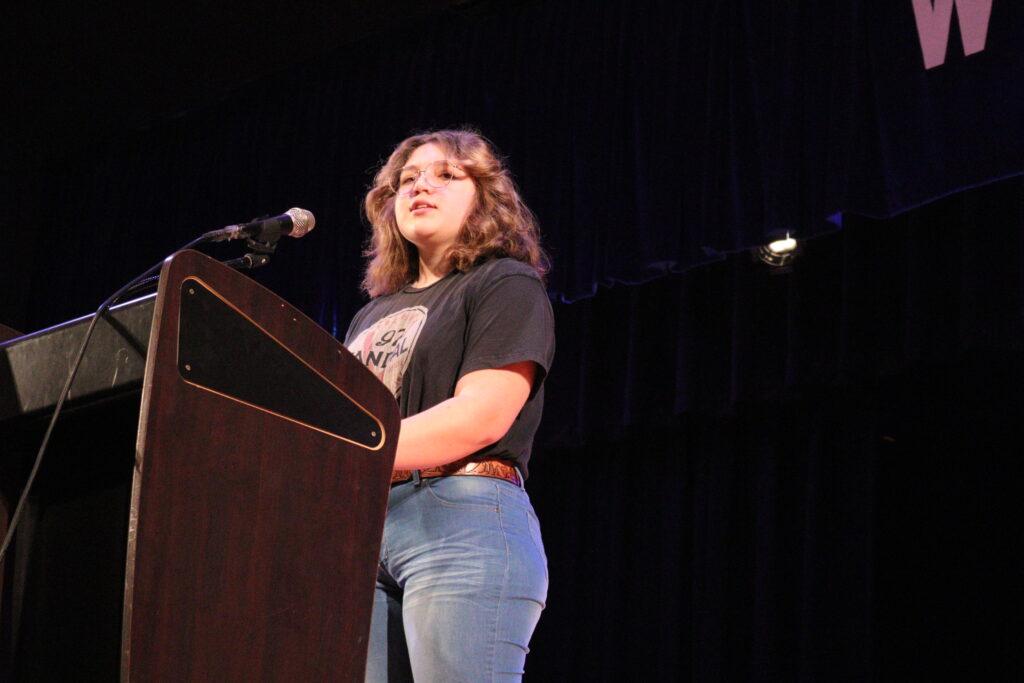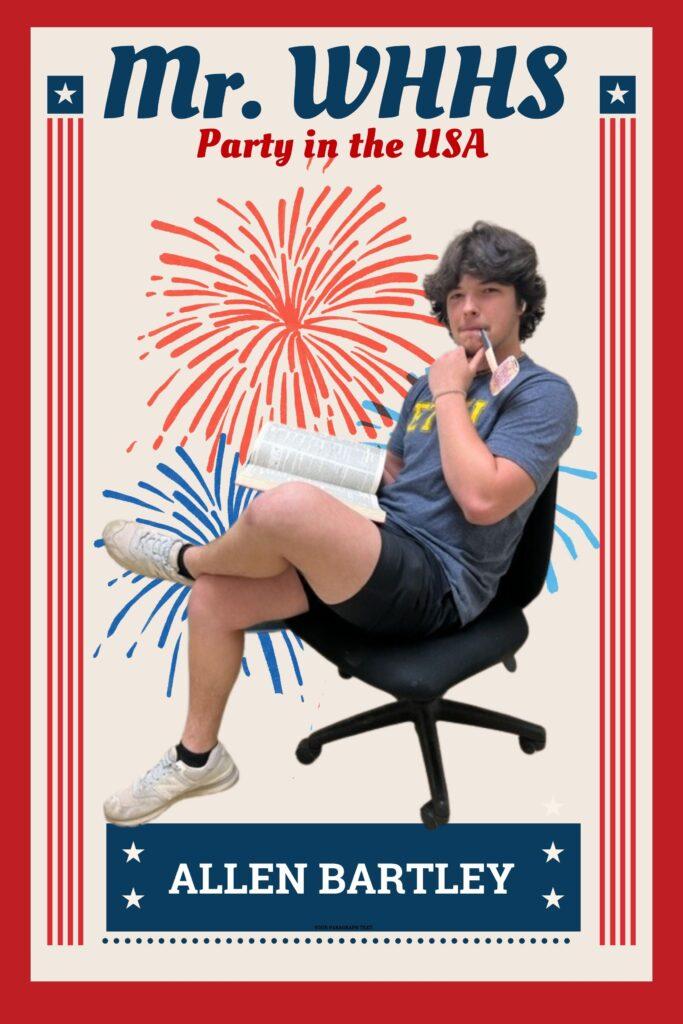Freshman Mikayla Chapman carried Denver, a 3-month-old mixed breed puppy into her home. Every year, Chapman and her family foster about 50 puppies from Charlie’s Angels Animal Rescue until they find a home, but this puppy was unique.
He had contracted a parvovirus, which attacks the immune system. After an intense treatment of medication prescribed by the vet, Denver pulled through. To Chapman, Denver’s success story is unforgettable, making him her favorite foster puppy. Chapman’s experience fostering has not only helped the puppies find homes, but it has helped her prepare for her future career in veterinary medicine.
“I (foster) because when I grow up I want to do something with animals,” Chapman said. “Some people struggle doing things with the dogs. I came easy to it, growing up with animals.”
For some, like senior Daniel Lewis, volunteering allows him to meet new people and explore some of his interests. He believes that in most cases volunteering his time is more helpful than donating money.
“Most of the time, I (volunteer) to hang out with my friends. I am all about talking to people and making new friends,” Lewis said. “I think hands-on volunteering helps out a lot. It is more important to volunteer your time because anyone can cash in a check, but not everyone is going to be there in person to help with everything.”
Volunteering has been found in many studies to improve social skills and even one’s mental health. For example, helpguide.org states that volunteering with animals can help to improve mood and lower stress levels. Meeting new people used to be difficult for Chapman; however, volunteering has helped her to overcome this personal challenge.
“When I was little I was really shy to talk to people, which I still sort of am,” Chapman said. “But I learned to evolve by volunteering with the community more.”
The U.S. Bureau of Labor Statistics reported that in 2015, 26.4 percent of teenagers ages 16 to 19 volunteered at least once from Sept. 2014 to Sept. 2015. Junior Cammi Ochs spends much of her free time helping the community, even with the time constraint caused by her higher-level classes. She knows the impact that volunteers have on our local community.
“I volunteer at least once every other week,” Ochs said. “A lot of things would not get done around here without people who volunteer their time and money to either clean up a river or plant trees. Otherwise those things would not get done, so I think volunteering has a large impact (on our community).”
Junior Wyatt Bentler admits that it can be hard for him to find time to volunteer as well. His involvement in clubs and extracurricular activities limits his free time, but he feels that planning ahead of time can help to alleviate the time crunch. In his opinion, planning ahead to volunteer is well worth the impact it can have on people.
“I don’t volunteer much, but I do when I can. I like to help the community and make it better,” Bentler said. “Some students choose not to volunteer because they have extracurricular activities and a lot of homework. (But volunteering) helps you build character. It makes you who you are.”
Ochs not only volunteers on her own, but she encourages others to volunteer through her role as vice president of Key Club. Just like many student volunteers, she hopes her time spent volunteering will pay off during her college application process.
“Key Club is a service organization where (members) come and learn about opportunities to volunteer as a group and go out to different events to volunteer. A volunteering club will give you different options of places you can go instead of having to find them on your own,” Ochs said. “The main reason I wanted to be an officer was because I had been in the club for two years before that and decided that it would look good on college applications to be an officer of one of the big volunteer groups at our school.”
A 2011 DoSomething.org survey of admissions officers from 32 U.S. colleges found that community service is ranked number four in importance in the admissions process with GPA and test scores (SAT and ACT) ranked higher and reference letters and interviews ranked lower. Lewis shared his opinions on why colleges take volunteering and community service so seriously.
“Colleges like to look and see if you were involved in any clubs or community service,” Lewis said. “It gives colleges an idea of what kind of person you are.”
The positive effects of volunteering are indisputable. Those in need are not the only ones benefiting from the hard work of volunteers; the volunteers themselves benefit as well.
“It doesn’t always sound fun to say you are volunteering, but it usually turns out to be fun, especially if you do it with friends. Not only is it fun, but it is helping people,” Ochs said. “We hear about kids in other states who create organizations and help their communities, and it just inspires people everywhere to do that in their own communities.”
By: Amber Detwiler







